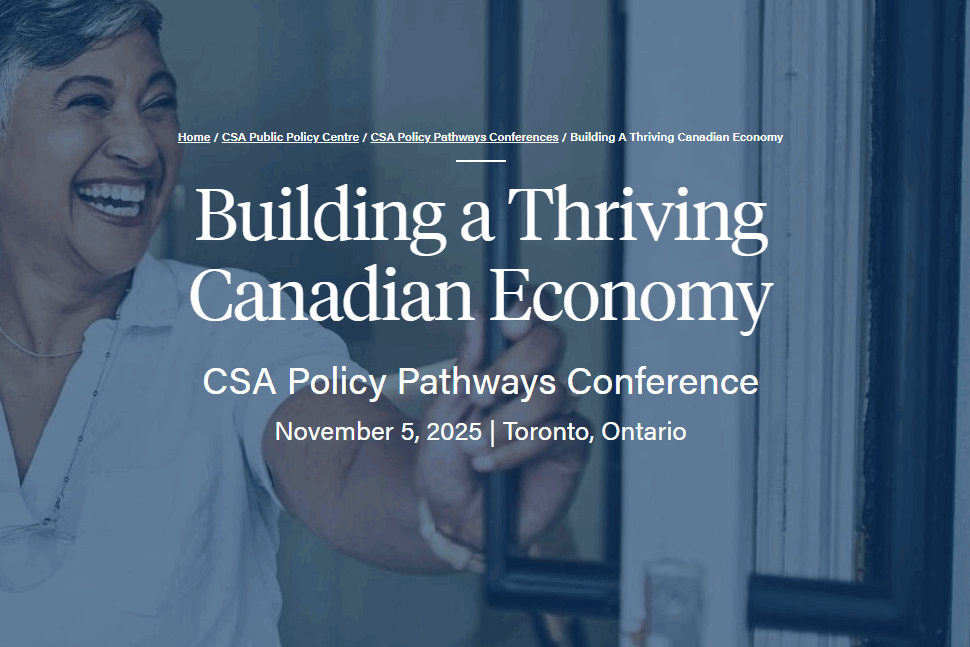Our Work
Over the past thirty years, most of the benefits of economic growth have gone to the wealthy. We want to help fix that by supporting ideas and policies that create more opportunities for working people to build wealth and own assets.
For policy solutions to the Trump administration’s economic and geopolitical threats, visit: Always Canada. Never 51.
The Ownership Solution
This special series features policy solutions that help more workers and communities profit from the value they create. We can redesign how our economy is owned so more Canadians benefit.
Budget 2025 should bolster employee ownership to strengthen Canada’s economy | Canadian Dimension
Budget 2025 offers Canada a chance to make employee ownership permanent by extending tax incentives for employee ownership trusts (EOTs) and worker co-ops. In Canadian Dimension, Simon Pek, Lorin Busaan and Alex Hemingway write that doing so would boost productivity, reduce inequality and secure business succession, while keeping jobs and decision-making local. A modest investment promises significant economic and social dividends.
What being an employee-owned company means to me
For what it’s like to be on the inside of an employee-owned company, we spoke to a few of the 750 employees who recently became 100-per cent owners of Taproot Community Support Services, a social services provider across B.C., Alberta and Ontario. Rewards the employees highlighted include company morale and spirit, for sure. They also include financial rewards paid out annually to each employee as dividends. Last year, each employee would have received about $1000 to $1500 on top of their salaries—and as the company succeeds over time, the employees will share financially in Taproot’s success.
Watch the video: Is Canada’s wealth gap really as bad as the U.S?
As Canadians, we like to think we’re strong and free. But as SCP's Director of Policy Dan Skilleter explains, when it comes to the wealth gap, we're looking more like America Lite—better manners, but almost all the inequality. The way our economy is set up means that most of the benefits from economic growth go to financial interests and speculators, rather than to workers or other businesses. We can shift economic power to more people and aspiring entrepreneurs by making them owners. When more people have a stake, Canada’s economy works better for everyone—not just investors.
Maple Ridge-based company now owned by its 750 employees | Maple Ridge-Pitt Meadows News
Neil Corbett of the Maple Ridge-Pitt Meadows News reports on locally based Taproot Community Support Services making some business history in Canada. Taproot's 750 employees in B.C., Alberta Ontario will now own 100 per cent of the business, becoming the largest Employee Ownership Trust (EOT) in Canada and the first in the social services sector. Finance minister Francois-Philippe Champagne explains why this is a perfect example of what EOTs can do, calling the trusts "a powerful, timely tool that helps Canadian employees become owners of the businesses they work for, while helping entrepreneurs find the right people to carry their legacy forward."
The Latest
Pipelines and algorithms aren’t going to save us | The Hill Times
Smart investments in natural resources and AI alone will not get us through this moment of geopolitical rupture. As Matthew Mendelsohn writes in an op-ed for The Hill Times, SMEs contribute just over half of Canada’s GDP and employ 64 per cent of our people. We have to make more low-cost capital available to the smaller businesses, locally owned enterprises, not-for-profits and social enterprises who crucially employ and reinvest locally, act as important local economic infrastructure and provide services that are crucial for well-being. They are automatic stabilizers in the face of tariff threats outside our control.
What’s wrong with mainstream economics?
Mainstream, or “neoclassical,” economics still dominates how we teach, study and understand our economy, even though much of it doesn’t match reality. In this piece, economists Louis-Philippe Rochon and Guillaume Vallet explain why outdated economic ideas persist and how they can lead to harmful policies. They challenge five common myths about inflation, growth and inequality, showing that today’s economy is driven more by power and institutions than by perfect markets. As "heterodox" economists, they argue it's time for a new kind of economics that reflects how the real world actually works.
Building a thriving economy: CSA Policy Pathways Conference
The CSA Policy Pathways Conference convenes leaders, thinkers and changemakers across government, business, community and academia to confront the pressing questions shaping our economic future. How can we build resilience in the face of global uncertainty? What will it take to unlock innovation and ensure its benefits are broadly shared? How do we design policies that promote competition, inclusion, and financial security? Join us on November 5, 2025, in Toronto, as we explore how we can take bolder steps toward a more resilient, innovative and equitable economic future.
Featured Research
Non-Permanent Residents and their impact on GDP per capita | Report
New research by economist and SCP Fellow Gillian Petit estimates what Canada’s GDP per capita would have been over the past decade if Canada had kept our temporary resident numbers stable. She also estimates the expected impact on GDP per capita in the coming years due strictly to planned reductions in Canada's intake of non-permanent residents. Among key findings: Canada’s GDP per capita is misleading and should not be used as if it were the sole indicator of economic well-being. Plus, if we had maintained our temporary resident numbers at two percent of the population in recent years, Canada’s GDP per capita would look much more like our peer countries: a little bit ahead of countries like Germany, the United Kingdom and Australia and a little bit lower than countries like Belgium, Sweden and France.
Keep up to date on SCP’s latest work
Subscribe to our eNews






